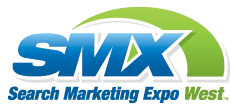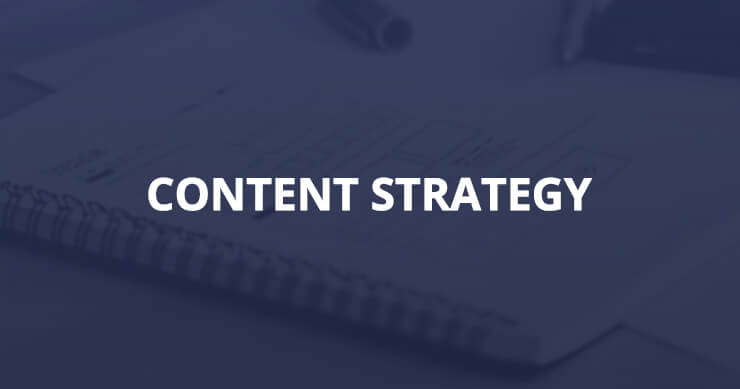And we’re back! Lunch was delicious but now it’s time to hop right into the sessions. Up on stage we have  Danny Sullivan moderating speakers Greg Finn, Jon Fougner, Bill Parkes, and Tony Wright. Danny’s enjoying giving me a hard today about which sessions I’m blogging and which I’m not. Seems when I don’t blog a session Danny is moderating he gets sad. That’s understandable. I pretty much bring the party.
Danny Sullivan moderating speakers Greg Finn, Jon Fougner, Bill Parkes, and Tony Wright. Danny’s enjoying giving me a hard today about which sessions I’m blogging and which I’m not. Seems when I don’t blog a session Danny is moderating he gets sad. That’s understandable. I pretty much bring the party.
We have silly music playing right now. Like people should be swing dancing. Or Greg Finn is about to be shipped off to World War II. Be safe, Greg!
Okay, we’re starting.
Danny says that everyone should get a Fan page for themselves. It’s like a Twitter account. Danny asks how many people are playing Farmville right now, which he calls only slightly less annoying that becoming the Major of some place. Hee. Danny’s just mad because he can’t get himself to be the Mayor of SMX. I want to be the Princess of SMX.
Up first is Greg Finn.
Facebook Groups were the Pages before Pages came about. They had a big overhaul last October. They’re not as strict as Pages.
- Pros: Able to be more private, have unique messaging opportunities, can give loyal members specialized titles, and they’re less regulated than Pages.
- Cons: Not fully indexable by search engines, not currently eligible for real-time search, not able to use personalized URL, no support for Apps, and there are no metrics.
Best Practices for Creating a Group
- Let anyone write on the wall, not just admins
- Show Events
- Enable the Discussion board
- Create Admins and Officers: They’ll have message rights. They can also kick you out. The officers don’t do anything but they can be used to promote loyalty. People like being given silly titles.
- Take advantage of the messaging options: The messaging part of Groups are extremely powerful and you can’t do that with Fan Pages.
He shows a case study of a Running group. It has over 4,000 members. You can message all of those members, but you can only do it if you have under 5,000 members. The group also has lots of Officers nominated. They have active discussions.
What are some best uses for groups?
- Hobbies
- Communities
- In-house Private Messaging
- Special Interest Groups
- Recurring Events
- Local Topics
What aren’t the best uses for groups?
Anything that isn’t a:
- Business
- Commercial, Political or Charitable Organization
- Political Campaign
- Band
- Celebrity
Facebook Events
Types of Facebook Events:
- Open: Anyone can see this Event and its content. Anyone can RSVP or invite others to this Event.
- Closed: Anyone can see this Event, but its content is only shown to guests. People will need to be invited or request invitations to RSVP.
- Secret: Only people who are invited can see this Event and its content. People will need to be invited to RSVP.
You can make a Facebook Event from a Profile, a Page or a Group.
On a Page, use the Events application from the back end. Don’t do it on the page itself because it’s not as powerful. You can take the Event and put it out into your Feed. If you’re doing it from a Group, you can easily invite people from the group, even if you’re not friends with them. It’s a good way to extend yourself to relevant members.
What are some best uses for events?
- The Obvious – Physical Events like SMX West.
- Sales & Specials – online only sales.
- Sweepstakes/Giveaways/Contests
- Release Dates
For Marketing
One of the easiest ways to promote:
- Pages
- Groups
- Events
Remember – the message comes from the profile itself! You can wear out your welcome as a friend if you’re continually sending them things. Because the message comes from your profile.
Best Practices
- The more friends, the more possible contacts
- Ensure that your friends are also target market
- Promote in moderation
- Don’t SPAM!
Other Widgets:
- Allow loyal users to share your content with their friends
- Allow users to easily share on Facebook with free easy to use Widgets – Greg shows an article he wrote for Search Engine Land yesterday that already has 400+ shares.
- Using avid & brand loyal customers to your advantage
Greg Finn is a super fast talker. #justsayin
Next up is Tony Wright.
Facebook Pages are typically the choice of businesses of all sizes. The content from Pages is published in the stream. There are built in analytics in the insights dashboard that provide marketing insight. The page publisher can utilize rich media – video, Flash, audio, etc. Simple SEO tactics are available to Page publishers. These Pages are showing up in Google’s real-time search so it’s important to understand what these pages can do off- and on-site.
Should you have a Fan page?
- Do you have the resources to keep it up? Will it just be a place holder? Are there ORM issues?
- Are you willing to provide customer service through your Fan page?
- Can you be creative about your posts so they’ll actually appear in someone’s stream?
- Are you willing to interact with your customers on Facebook?
The Stream Algorithm
How does the News feed determine which content is most interesting? If you have 200 friends, you’re not seeing everything that everyone is posting. The News feed algorithm bases this on a few factors: How many friends are commenting on a certain piece of content, who posted the content, and what type of content it is (photo, video, status update, etc). Things with a lot of comments are more likely to show up in someone’s stream. Fan pages with more fans get more weight in the stream.
The stream is a true social algorithm. Some known factors include:
- How many people are commenting on stories.
- Who you’re close with.
- Who you interact with most frequently
He expects News Feed Optimization to become a session next year at SMX.
Facebook Analytics
Facebook Insights page provides good, basic data for most businesses. If you have more than 10,000 fan, you can use “per post analytics”. Per Post Analytics give administrators a look at how many raw impressions an administrator-initiated post on the page received, as well as the overall feedback rate.
Third party analytics tools for Facebook:
- Omniture
- Sometrics
- Kontagent Viral
SEO for Facebook
- Naming conventions: Words mean things. Choose wisely, but don’t spam.
- URLs matter, but remember the user before the bot
- Keyword dense copy should go toward the TOP of the page
- Info tab is a great place for more keywords
- Static FBML boxes are great for content – keyword-rich, of course.
On-page is the foundation for Facebook, but links are what get you rankings. You want people to link to your Facebook fan page. Promote your Facebook presence in places besides Facebook. Be careful not to cannibalize other linking strategies. Get more intra-Facebook links by getting more fans.
Who’s Doing It Right?
Next up is Bill Parkes.
How to have a Facebook Makeover
- Create a Plan: Be clear about your business goals and objectives. Use that as the cornerstone for figuring out the role Facebook should play in that process. You need to align what role you expect it to play. With that, prioritize where you go first. None of this is a “set it and forget it”. You need a resource plan. Create your hook. How do you make sure there’s something in it for your audience? Use things like gifts, coupons, contests, promotions, VIP/exclusive content. Personally, I love exclusive content, but you probably already knew that about me.
- Develop Your Look: It’s all about brand expression. It allows you to build a connection between what you stand for and where you win against your competitors. Be clear about what those things are and use them to differentiate yourself. Make sure that you’re watching your competitors. There’s not a huge number of brands participating here, so you have a big opportunity to get a head start. Cause marketing on Facebook is a match made in heaven.
- Express Your Brand:Secure your username. Control the first impression. Use the custom tabs. Extend the use of profile picture so you get more graphic impact and personality.
- Work It: Balance participation vs broadcast. Leverage existing content and programs. Listen to your fans. Cross promote. Add value!
Jon Fougner is here from Facebook and is just going to make some general remarks. He seconds everything that Tony said about SEOing your Facebook account. They’re trying to find out what’s useful so they can prioritize stories.
Three quick SEO wins:
- Backlinking from your own Web site – link to the custom URL.
- Maximize the number of your fans
- Play around with the analytics data. Because people have to be logged in when they do things, they have great insight into what users are doing. You don’t have to guess.
And we’re out! Some awesome presentations in this one. Go grab some coffee. We’ll be back in a bit.


